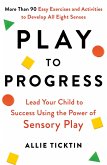As children grow, there may be times when their behavior seems out of place or troubling. When there is a recurrent pattern of one or more of these types of behavior, something may be wrong. As a parent, if you have noticed something “off” about the way your child has been acting, perhaps it’s time to take a closer look at what might actually be going on—before it gets worse. What to Do About Your Troubled Child is designed to provide you with the information you need to get to the bottom of the mystery. If a behavioral disorder is caught early enough and treated correctly, it can be greatly lessened or even eliminated. Unfortunately, many behavioral problems in children go undiagnosed for so long that they progress beyond the possibility of improvement. This book is divided into two parts. Part One looks at six of the most common behavioral disorders: Obsessive-Compulsive Disorder (OCD), Attention-Deficit/Hyperactivity Disorder (ADHD), Autism, Anxiety Disorders, Oppositional Defiant Disorder, and Conduct Disorder. Each chapter focuses on one disorder and includes a list of questions intended to determine if your child exhibits enough of the tendencies associated with this disorder to warrant a closer look. It then describes the symptoms and risk factors of the problem, how it may be professionally diagnosed, and traditional means of treatment, which include therapy and medication. Part Two offers a detailed look at complementary approaches to treatment, such as lifestyle changes, nutrition, beneficial programs, and helpful devices. Telling yourself that your child is bound to grow out of a certain pattern of behavior may be causing you to ignore the signs of a serious issue—one that should be addressed. By the time your child reaches adolescence, the disorder may be too far gone. Now is the time for you to understand and do something about it. Now is the time to let What to Do About Your Troubled Childbe your guide.
Bitte wählen Sie Ihr Anliegen aus.
Rechnungen
Retourenschein anfordern
Bestellstatus
Storno








